Australia Covid news live: Covid-19 cluster in Melbourne aged care home grows to four cases
A Covid-19 cluster has forced residents in a Melbourne home to isolate with growing concern amid a rise in cases in just 24 hours.
Welcome to Monday’s coverage of Australia’s Covid-19 situation.
NSW recorded 294 Covid cases and four deaths on Monday, though authorities are still bracing for a rise in infections due to the state’s eased restrictions.
Victoria recorded 1461 cases and seven deaths. It comes after Premier Daniel Andrews announced major changes on Sunday to the state’s roadmap once new vaccination milestones are reached.
The live blog has wrapped up for the day. Read on for today’s top headlines.
Concerning cluster grows in one day
A Covid-19 cluster in a Melbourne aged care home has grown to four cases in just 24 hours.
Two residents at Mercy Place in east Melbourne, close to Melbourne’s CBD, tested positive for the virus yesterday.
One resident is now in hospital while another resident and a staff member tested positive today.
Mercy Health told the ABC all residents are isolating in their rooms and the nursing home is currently closed to visitors.
Andrews grilled about Victoria reopening, Australian Open
The Victorian Premier Daniel Andrews has put the onus squarely on the Federal Government to not allow unvaccinated tennis players into the country for the Australian Open.
Speaking to the ABC’s Raf Epstein on Monday afternoon, he said it is “not too much to ask” the Morrison Government to reject working and visitor visas for players who refuse to be vaccinated or who, like Novak Djokovic, refuse to declare their vaccination status.
“We’ve got a cap on returning Australians who have not been through the vaccine program — it’s 250 a week,” the Premier said.
“We make them do hotel quarantine. We don’t have endless capacity. You try getting into the US, most of Europe, parts of Asia (without being double vaccinated). You’re not getting a visa. Why would that be different here?
“We’re talking about people who would be here under a work visa or visitor visa. I don’t think it’s too much to say, if you want one of these visas, you need to be double vaxxed.
“All the people watching the tennis will be double vaxxed. All the people working there. Stands to reason that if you want to get into the country to be part of that tournament, you should be double vaxxed aswell.”
He said feedback to him has been very straightforward.
“The feedback I get: People don’t want to be served by someone who is not vaccinated. They don’t want to be seated next to someone that is not vaccinated. People say, quite rightly, ‘I’ve done it, why haven’t you?’”
What experts got so wrong about Victoria
Modelling saw this coming for Victoria. Well, some of it. One part they got very wrong.
The Burnet Institute predicted Victoria’s spike in infections accurately in research published in September.
Researchers wrote that even without any easing of restrictions, daily cases (on a seven-day average scale) would be between 1400 and 2900 between 19-31 October.
They were right about that. On Monday, Victoria recorded 1461 new cases.
But the team at the Institute also predicted a corresponding peak in hospital and ICU admissions that has so far not materialised.
The research predicted there would be between 1200 and 2500 cases in hospital and between 260 and 550 cases in ICU at this time. They said there was “a moderate risk of exceeding health system capacity”.
But as of Monday, there were 802 people in hospital and 152 people in ICU.
Sports Minister Martin Pakula picked up on the discrepency — largely credited to high vaccination rates — when speaking with Melbourne radio hosts on 3AW on Monday.
“I think the important thing to look at is, not so much the case numbers, but the hospitalisation and ICU numbers,” Mr Pakula said.
“The truth of the matter is while the case numbers are tracking pretty close to the Burnet (Institute) modelling, the numbers in hospital and the numbers in ICU are significantly lower than what was modelled and anticipated.
“Those numbers are tracking below the model and I think the indication has been very clear, this is the path we are on now.”
Aussie actress suffers stroke after jab
An Australian actress has suffered a rare side effect to the AstraZeneca vaccine which saw her undergo emergency surgery in a bid to save her life.
Melle Stewart, a 40-year-old Queensland actress, has been living and working in London with her husband and fellow actor Ben Lewis.
She received her first dose of the AstraZeneca vaccine on May 24 but two weeks later on June 8 suffered a severe reaction.
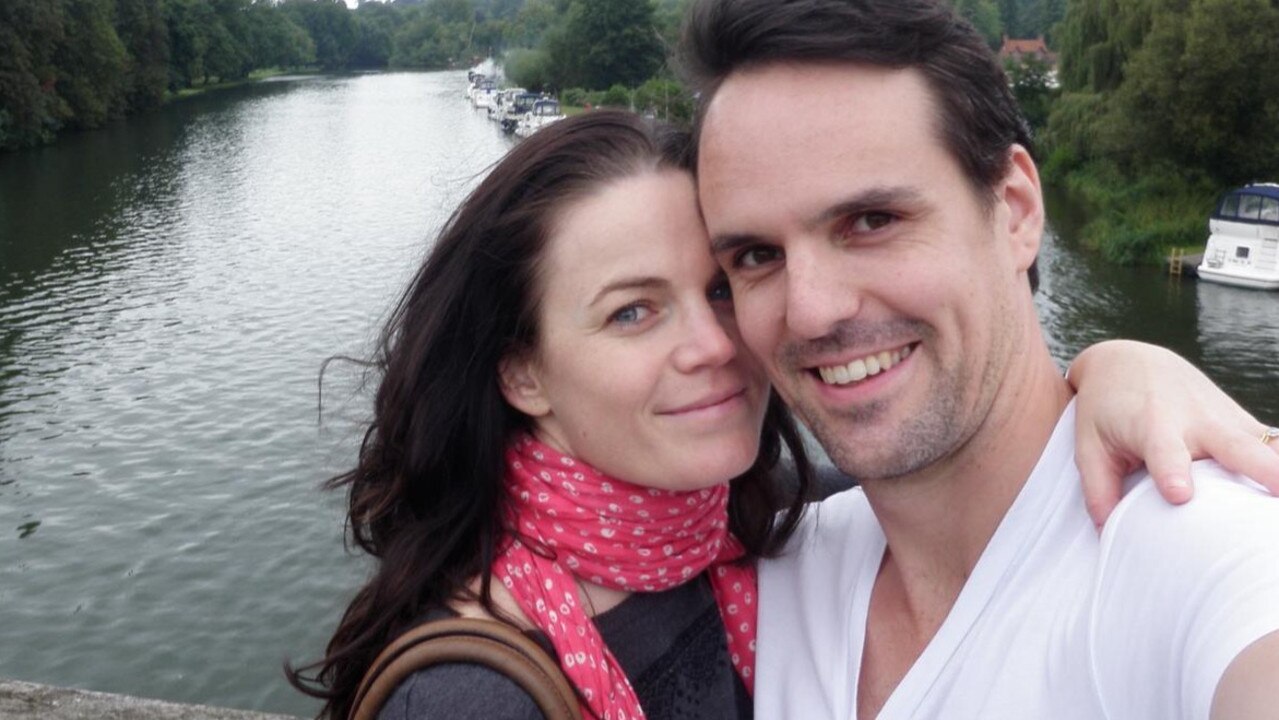
“Melle woke up at midnight to a strange feeling on the right-hand side of her body. She tried to get out of bed but quickly collapsed. Melle was rushed to hospital where her condition quickly deteriorated, losing all movement on the right-hand side of her body as well as her ability to speak,” a GoFundMe page set up for her medical expenses states.
“She began having seizures and was taken by ambulance to St George’s Hospital, London, where neurosurgeons battled to save her life, removing a large part of her skull to reduce the pressure in her brain.”
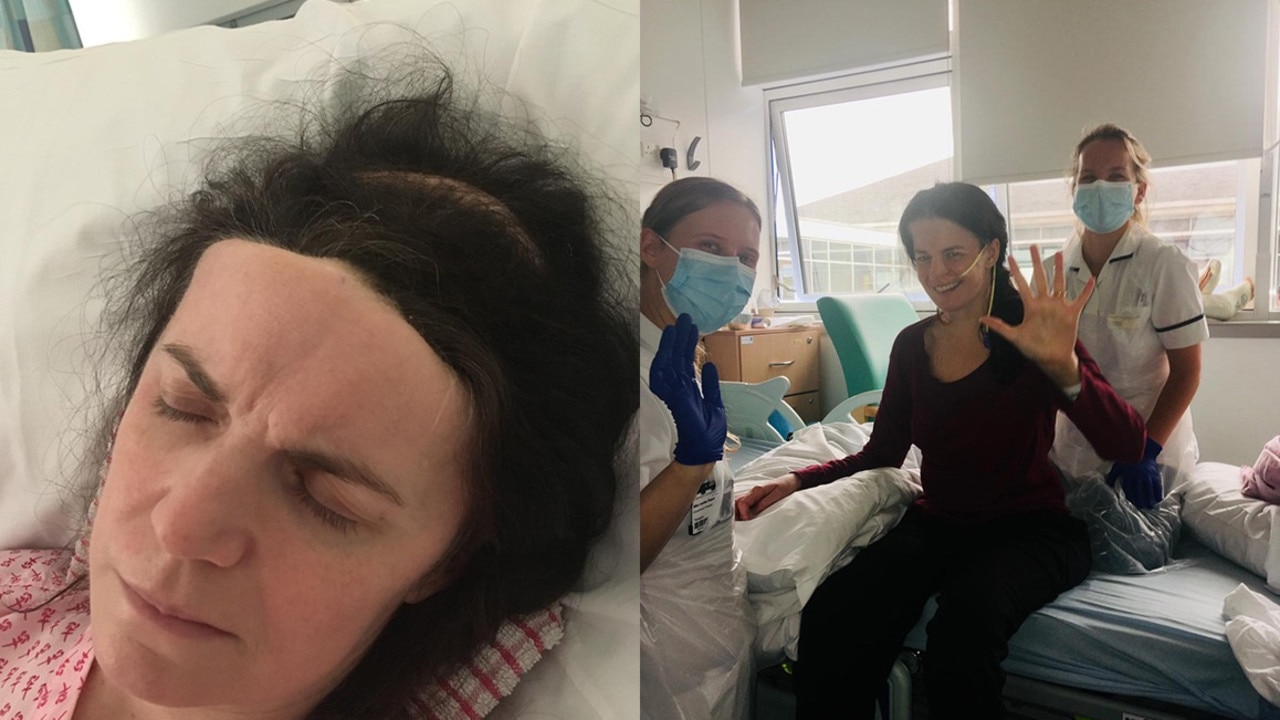
Ms Stewart was diagnosed with vaccine-induced Thrombocytopenia Thrombosis syndrome (TTS), a very rare side effect that has been linked to the AstraZeneca vaccine.
Doctors discovered two large blood clots in the main veins of her brain, which caused her to have a severe stroke.
She spent three week in an included coma during which time she was ventilated and received a number of blood transfusion procedures.
Ms Stewart spent five week in ICU, before being transferred to an Acute Stroke Unit for rehabilitation and then moved to a specialist London hospital on September 8.
TTS is extremely rare and is currently estimated to impact about 1 in 100,000 people who receive the AstraZeneca vaccine.
The risk of dying from TTS after the first dose of the vaccine is less than one million, compared to the risk of dying from Covid-19 which is 42,000 in a million.
AstraZeneca is an effective vaccine and offers high levels of protection against Covid-19.
Despite suffering a rare adverse reaction, the Aussie actress “has been and continues to be an advocate for vaccination”.
The GoFundMe page has raised over $167,000 to help Ms Stewart with her recovery.
Woman in 20s among Victorian deaths
A woman in her 20s has been identified as one of the seven new Victorian Covid patients who lost their lives.
The state recorded 1461 Covid cases and seven deaths in the 24 hours to midnight last night.
“Very sadly, seven people lost their lives yesterday in the reporting period to Covid-19,” Health Minister Martin Foley said.
“A woman in her 20s, a man in his 40s, a man in his 60s, two women and a man in their 80s and a man in his 90s.
“We particularly take this opportunity to reflect and send our deepest condolences to all those families, communities and friends of those people who have tragically passed away.”
Covid-19 Commander Jeroen Weimar revealed that two-thirds of new cases in Victoria are unvaccinated. In Hume, where the majority of Victoria’s new cases are located, 97 per cent of new cases under 40 are not vaccinated.
Qld Covid case ‘tried to escape hospital’
An unvaccinated Queensland man who was infectious in the community for 10 days has allegedly tried to escape a Gold Coast Covid facility.
According to Nine’s Today, police are “investigating an attempted escape” inside the Covid ward at the Gold Coast University Hospital.
The patient is believed to be 36-year-old rideshare driver Duran Raman who tested positive to Covid last week after returning from a trip to Melbourne.
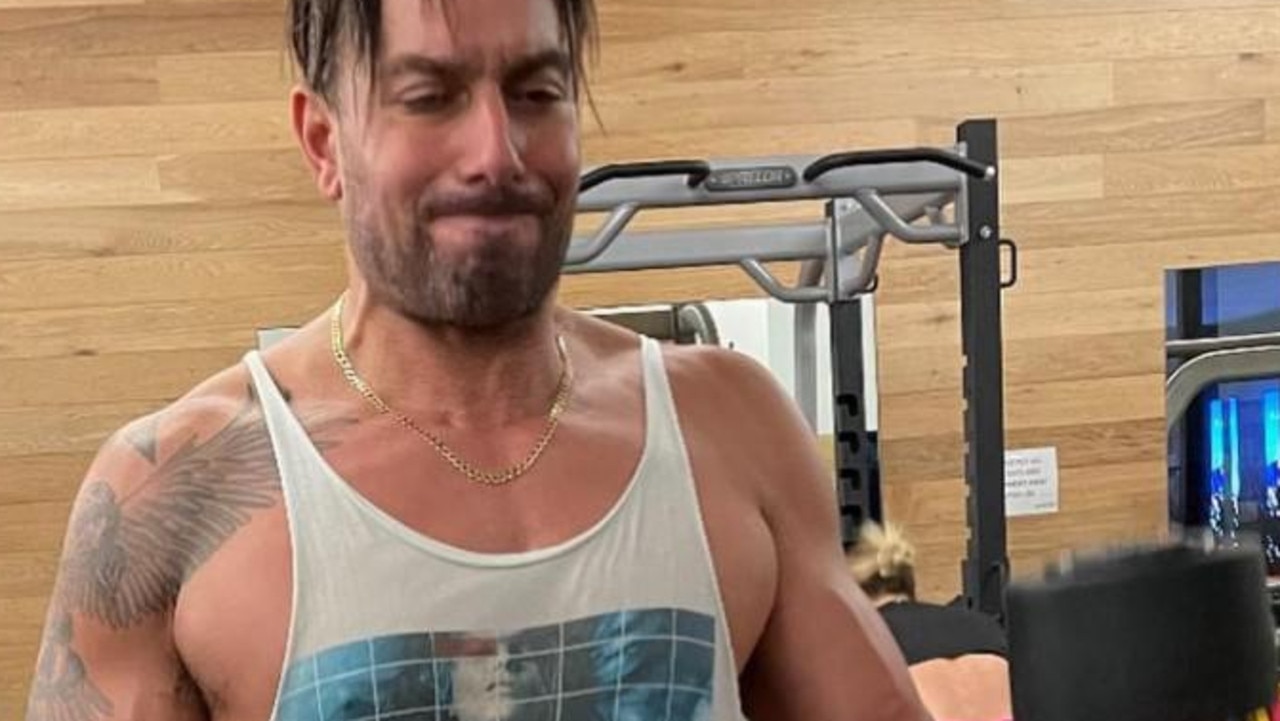
Chief health officer Dr Jeannette Young said last week the Raman was “so sick” that he was struggling to speak with contact tracers and revealed he would likely have to go into the ICU.
News.com.au has contacted Queensland Police regarding the claims he has tried to escape from his room inside the Covid ward.
Last week Dr Young revealed the man worked as a rideshare driver for Uber and hadn’t been using his QR code check in app when visiting venues.
In a statement, Uber said the man had not driven using their platform since September 19.
“We work with public health authorities in each state, and have processes in place to temporarily remove an individual’s access to the Uber app if authorities report an infection. We may also limit other individuals’ access to the app if health authorities advise there is a risk,” a spokesperson for Uber said.
No new Covid cases in Qld
Queensland has recorded zero new locally acquired Covid-19 cases in the past 24 hours.
Monday 25 October – coronavirus cases in Queensland:
— Annastacia Palaszczuk (@AnnastaciaMP) October 25, 2021
0 new cases detected in Queensland overnight.#covid19pic.twitter.com/sibTRe40j2
Home quarantine to begin NT
The Northern Territory government has announced it will begin home quarantine for fully vaccinated Aussies.
From November 23, 14 days of home quarantine will be made available to fully-vaccinated domestic travellers, with a pilot to first take place in Darwin.
The eligibility requirements include:
• Being fully vaccinated
• Providing proof of a negative Covid test less than 48 hours before entering the NT
• Undergo testing on day 1, 3, 5, 7, 12 and 17
• Use the Good To Go App
• Stay in a house, unit, apartment, hotel or Airbnb
• Not have any visitors during the quarantine period.
ACT records nine Covid cases
The ACT has recorded nine new locally acquired Covid-19 cases in the past 24 hours.
There are currently 20 Covid patients in hospital, with 10 in the ICU.
ACT COVID-19 update (25 October 2021):
— ACT Health (@ACTHealth) October 24, 2021
â—¾ New cases today: 9
â—¾ Active cases: 332
â—¾ Total cases: 1,595
â—¾ Negative test results (past 24 hours): 647
â—¾ In hospital: 20
â—¾ In ICU: 10
â—¾ Ventilated: 5
â—¾ Total lives lost: 8 pic.twitter.com/CHtzBGVtzH
When you can get your Covid booster shot
Aussies will have access to a Covid booster shot about six months after they receive their second vaccine dose.
Head of Australia’s Covid vaccine taskforce, Lieutenant General John Frewen, said booster shots for some Aussies are already underway, but would likely still be a few months away for the general public.
“Booster doses for the immunocompromised have started and that’s just to bring the people up to the same level of protection that rest of us achieve through just two doses,” he told ABC’s News Breakfast.
“But we’re waiting on Atagis’s advice now around boosters.
“We expect that the advice is imminent and we think what’s going to happen is that a booster shot will be made available from six months, from your second dose.
“So we’ll work the priority groups in the very first instance, aged care, disability, frontline health workers and those sorts of areas.
“But we think what will happen is that as people become eligible from six months, they’ll just be able to go and grab a booster shot.”
NSW records 294 cases and four deaths
NSW has recorded 294 Covid cases and four deaths in the 24 hours to 8pm last night.
NSW COVID-19 update – Monday 25 October 2021
— NSW Health (@NSWHealth) October 24, 2021
In the 24-hour reporting period to 8pm last night:
- 93% of people aged 16+ have had one dose of a COVID-19 vaccine
- 84.8% of people aged 16+ have had two doses of a COVID-19 vaccine
- 59,612 tests pic.twitter.com/QyhwwjOrAi
Victoria records 1461 cases and seven deaths
Victoria has recorded 1461 Covid cases and seven deaths in the 24 hours to midnight.
We thank everyone who got vaccinated and tested yesterday.
— VicGovDH (@VicGovDH) October 24, 2021
Our thoughts are with those in hospital, and the families of people who have lost their lives.
More data soon: https://t.co/OCCFTAtS1P#COVID19Vic#COVID19VicDatapic.twitter.com/E48z03dhQ4
Vaccine fail could delay key freedom for Qld
Queensland’s slow vaccination uptake could have major ramifications for the state, with concerns international travel to the region could be delayed for up to 12 months.
Currently, 60.4 per cent of Queenslanders over the age of 16 have had two vaccine doses, with 74.9 per cent having had one dose.
According to analysis by The Courier Mail, if Queensland keeps going on its current trajectory only 77.47 per cent of residents over the age of 16 will be fully vaccinated by December 17, when the state is set to reopen.
This means the state will likely hit is 90 per cent vaccination target in January, a milestone that will allow international arrivals to avoid quarantine.
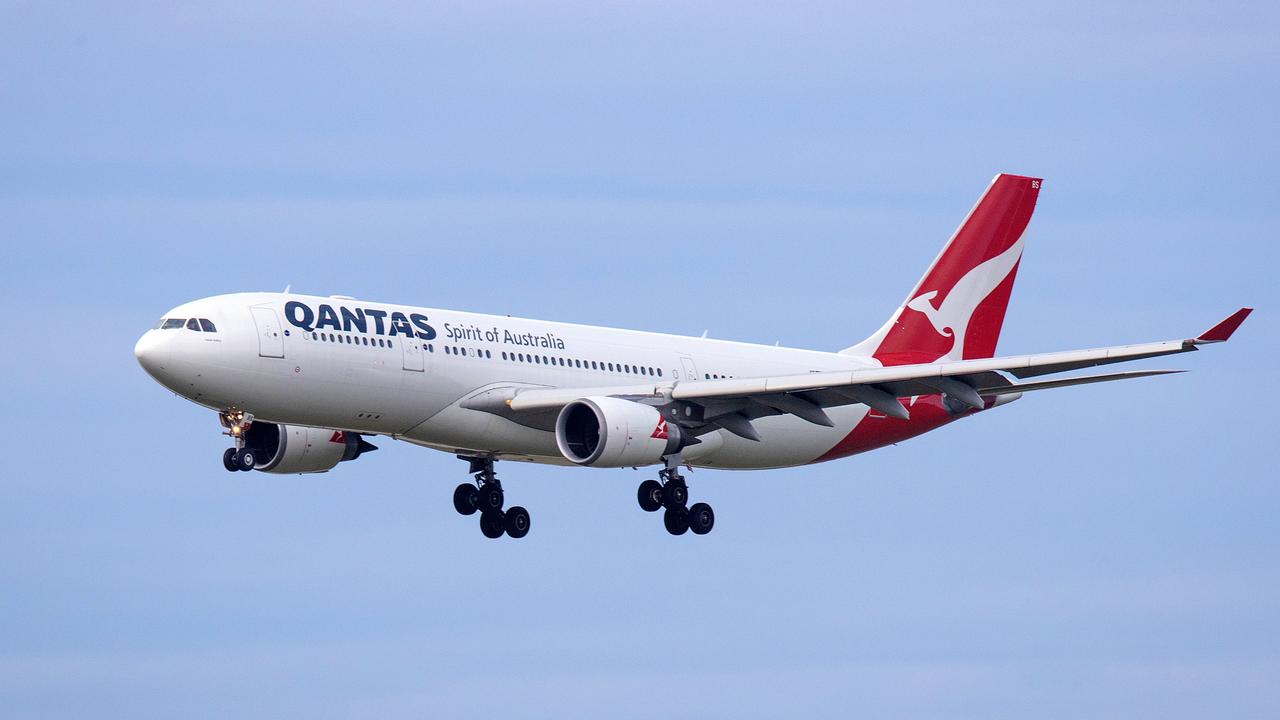
However, Flight Centre boss Graham Turner said lagging vaccination rates means the state could be forced to wait even longer before hitting that milestone.
“Queensland may not get to 90 per cent for six to 12 months,” he told The Courier Mail.
“Airlines like Qantas are not going to fly into Queensland without certainty, so it could be six to 12 months before Qantas comes back in Queensland flying overseas.”
On Sunday, Deputy Premier Steven Miles made it clear that quarantine for international arrivals would only be scrapped once Queensland reached that 90 per cent vaccination goal.
“We have outlined our road map, it’s very clear, at what threshold people can return and when they will and will not be required to quarantine and we intend to stick to that road map,” he said
16 NSW schools to remain shut over Covid cases
More than a dozen NSW schools will remain shut, despite all students across the state able to return to face-to-face learning from today.
NSW school students have endured four months of home learning due to the most recent Covid-19 outbreak, but this morning classes will resume as normal for all year groups.
However, 16 schools will remain shut after being listed as a Covid-19 exposure site, according to The Daily Telegraph.
Four Sydney schools are among those remaining closed, including Mt Druitt Public School, Bonnyrigg Heights Public School, Bringelly Public School and Bradbury Public School.
All teachers returning to the classroom today must be fully vaccinated under NSW’s vaccine mandate, though the cut off date for the jabs isn’t until November 8.
NSW could scrap restrictions earlier than expected
NSW Premier Dominic Perrottet is reportedly considering ditching NSW’s restrictions early in a bid to keep up with Victorian Premier Daniel Andrews’ accelerated roadmap to freedom.
Yesterday, Mr Andrews announced he would be scrapping the majority of the state’s restrictions by November 25, when the 90 per cent double vaccination target is expected to be reached.
This timeline puts Victoria a week ahead of NSW in terms of reopening, with the majority of NSW’s rules to end on December 1.
However, The Australian reports NSW is now prepared to ease restrictions on November 25 or sooner.
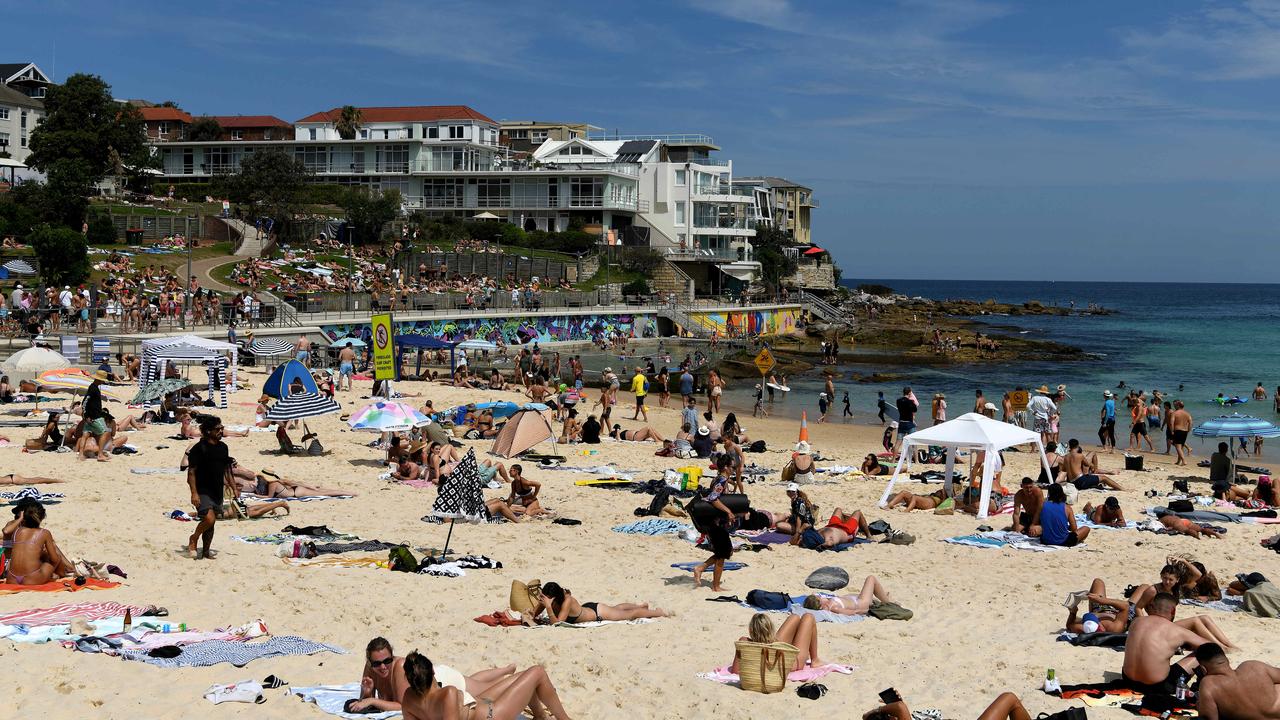
A spokeswoman for Mr Perrottet said NSW was now on track to reach its 90 per cent vaccination goal “very soon”, saying the roadmap has previously been updated with extra eased restrictions for fully vaccinated people.
“We have continued to monitor vaccination and hospitalisation rates and, wherever safe to do so, will further update the road map for the fully vaccinated,” the spokeswoman told the publication.
“Our aim remains returning the freedoms and the life we all love as safely and quickly as possible.”
On Sunday, 93 per cent of NSW residents aged over 16 had received one vaccine dose and 84.8 per cent were fully vaccinated.
Under NSW’s current roadmap, from December 1 unvaccinated residents will be given the same freedoms as fully vaccinated people.
Venues will also be able to move to the two square metre rule and masks will only be required for public transport, planes, airports and indoor front-of-house hospitality staff.
The limits of household visitors and outdoor gatherings will be scrapped, along with caps for personal services such as hairdressers and beauty services.
Singing and dancing will be permitted outdoors and indoors and there will be not limits of major recreation or entertainment facilities.
All of Victorias updated Covid-19 rules
Victorians can finally look towards a Covid-normal way of life beyond November, with the state expected to reach two crucial vaccine milestones in the coming weeks.
Premier Daniel Andrews announced two sets of rules which would cover all of Victoria once the state hit an 80 per cent double-dose vaccination rate, and then at 90 per cent.
All the rules changing at 80 per cent – 6pm on Friday:
• Travel from Melbourne to regional Victoria will be allowed.
• Most indoor settings, including restaurants, pubs, gyms and hairdressers will open with no caps subject to a 1-person per four square metres limit – all staff and patrons must be fully vaccinated.
• Most outdoor settings will remain at 1-person per two square metres limit (up to 500 people) – where staff and patrons are fully vaccinated.
• These indoor and outdoor settings will also apply to weddings, funerals and religious gatherings if all attendees are fully vaccinated.
• Early childhood education and care is open.
• All students return to school with additional safety measures in place.
• On-site adult education returns for fully vaccinated Victorians.
•Caps of 30 people will apply for weddings, funerals and religious gatherings if vaccination status is unknown.
• Entertainment venues will reopen. For indoor seated venues including cinemas and theatres, there will a 75 per cent capacity or up to 1000 people, and for non-seated indoor entertainment venues there will be a 1-person per four square metres limit with no patron cap.
• Masks will remain mandatory indoors but no longer required outdoors. It is highly recommended you continue to wear a mask outdoors where you cannot physically distance.
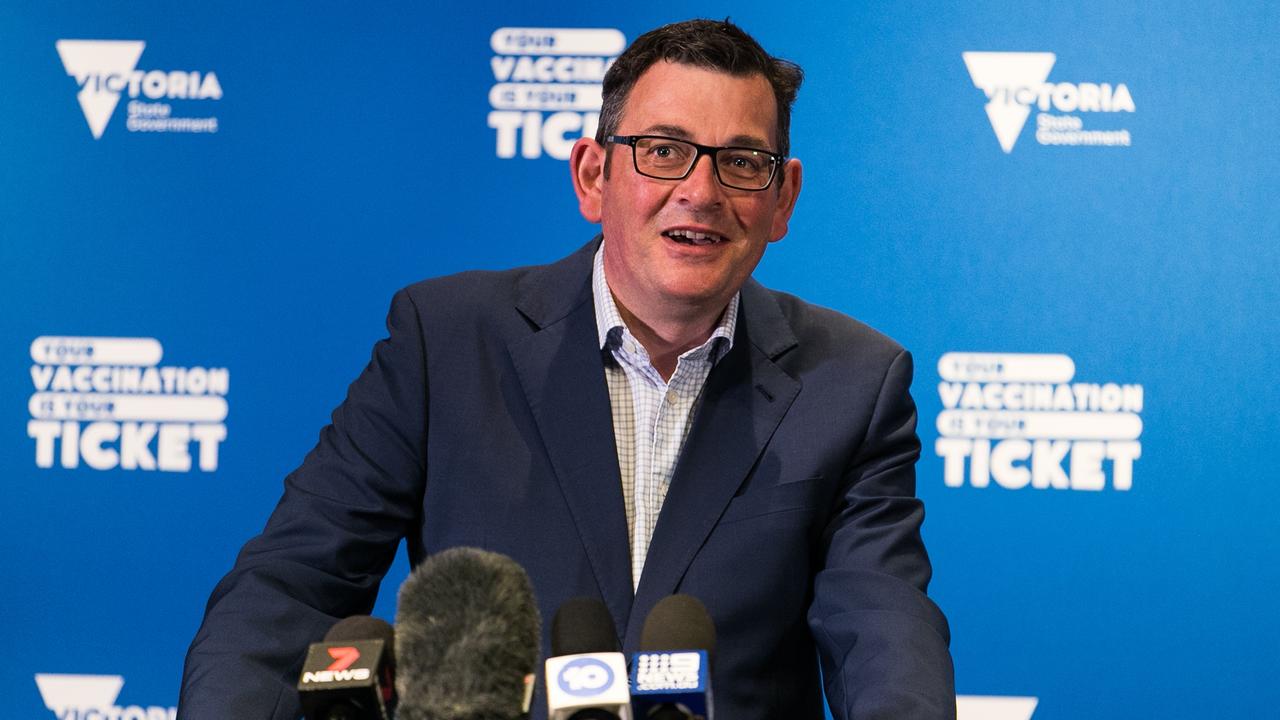
All the rules changing at 90 per cent – November 24
• No (capacity) caps anywhere and no density limits.
• Masks only required in high risk indoor settings such as public transport, prisons, hospitals and aged care.
• Double-dose vaccination proof required when attending venues, events.
– Additional reporting NCA NewsWire
Vaccinated economy ‘here to stay’ in Victoria
Premier Daniel Andrews stressed that many of the freedoms announced on Sunday will only be available to the “vaccinated economy”, which is “here to stay”.
“We will retain the vaccinated economy, all those requirements, although settings, where you only get in if you are double vaccinated, and you can tap and verify that for everybody,” he said.
“In fact, we will add to the vaccinated economy by asking and mandating that all non-essential retail will have to be vaccinated as well, both to go in, and also to work on those settings.”
Non-essential retail staff in Victoria will need to get vaccinated by this Friday, 6.30pm, with the government expected to provide more information about the mandate.
As the state opened up Mr Andrews said Victorians could expect two rules in place through next year.
“Some masks in some settings, principally indoors, where there is a greater risk, and the economy being open to you only if you have had to shots, only if you are fully vaccinated,” he said.
“They are two rules that be enduring. They are the two rules that will be with us right throughout 2022.”
Read related topics:Melbourne



